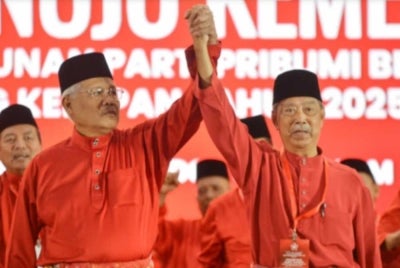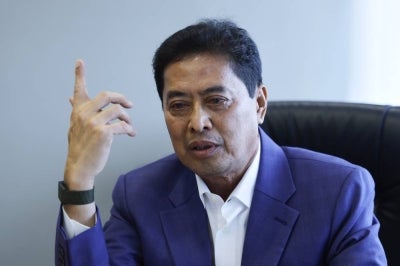Find balanced approach to mitigate impact of subsidy cuts - Zaid Ibrahim
SHARIFAH SHAHIRAH
SHAH ALAM - Former law minister Datuk Mohd Zaid Ibrahim has commended the government's initiative to address the subsidy conundrum, noting its delicate nature.
Nonetheless, the challenge laid in countering the fallout from escalating prices once subsidies were removed.
Zaid believed that gradually reducing subsidies was a necessary step, but he cautioned that the government must carefully consider the impact on individuals and businesses.
In the short term, he said, the withdrawal of subsidies could make it difficult to afford necessities.
"The government has taken the right step to address the issue.
"The only thing I'm worried about is how you deal with increasing prices.
"If you have no more subsidies, in the short term people will have problems buying necessities," Zaid said in an exclusive interview with Sinar Daily recently.
He cited Singapore as an example of a country that has successfully implemented subsidy adjustments.
The Singaporean government, he said provided cash assistance to specific sectors and groups to mitigate the impact of price increases.
Zaid also highlighted the issue of wages, particularly the inadequacy of the current minimum wage of RM1,500.
He argued that this amount was insufficient to sustain a decent standard of living for many individuals and that the government needed to address the issue of low wages.
"Expenditures have a disproportionate impact on the economically disadvantaged.
"A comprehensive approach should include not just subsidy adjustments but also a reevaluation of punitive measures," he added.
To mitigate the effects of subsidy reduction, Zaid advocated for a balanced approach.
He suggested that the government should carefully allocate resources, ensuring minimal disruption to the public, rather than completely removing subsidies.
“This involves striking a balance between subsidy reduction and addressing other financial burdens, such as fines and toll fees.
“We are overwhelmed with fines and penalties.
"The government needs to take steps to reduce these, so people have more cash to deal with rising costs of essentials like eggs, chicken, rice and other necessities," he said.
Last month, the government announced the end of chicken price subsidies to address concerns about the leakage of subsidies to foreign individuals and higher-income groups.
This decision was made after considering the current market conditions, supply trends, farm prices and the stabilisation of chicken production costs, which have led to market prices staying below the ceiling price.
Download Sinar Daily application.Click Here!














